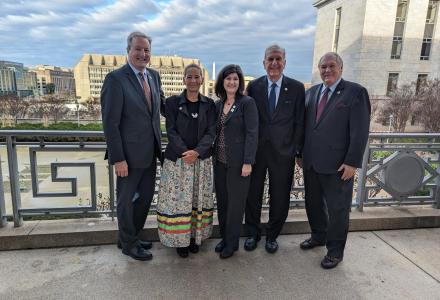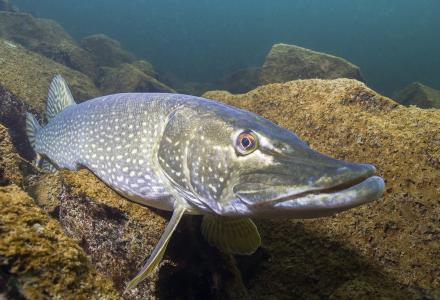
The Great Lakes are filled with great stories, and Detroit Public Television – through its new Great Lakes Bureau – is anxious to begin telling them.
The cameras and crew of Great Lakes Now have been a fixture at annual Great Lakes Week events since 2011. In that time, we’ve met many of the leaders who are working – sometimes fighting – to sustain the health of the Lakes through a variety of environmental, scientific, and regulatory organizations.
We covered many important stories in Chicago during Great Lakes Week 2015, on algae, separating the Great Lakes from the Mississippi basin at Chicago, developing green infrastructure solutions, and addressing environmental justice issues.
But these are not all the stories the Lakes have to tell.
What we’ve learned in our work is that most citizens see only small slices of the Great Lakes, and don’t realize how their actions affect the health of these massive bodies of water. Media coverage of Great Lakes issues tends to focus on what is “close to home” – an area within 50 miles or so of the place where the reporter lives. It’s not bad coverage – just very local.
Now, with the support of the Erb Family Foundation, Great Lakes Now is becoming a year-round bureau that hopes to collect and redistribute the hundreds of stories that are being told around and about the Lakes, and in turn, bringing them to larger audiences. We’ll do this by reaching out to touch not only the minds of our audiences, but their hearts as well.

If you are from one of the states or provinces bordering a Great Lake, chances are you carry a favorite image around in your head: a favorite beach, a sunrise or sunset full of color, a big freighter gliding by a city waterfront, Pictured Rocks, the Indiana Dunes, or a summer afternoon when the surface of the lake is dotted with sailboats.
These images define us as residents of the Great Lakes basin, but most people rarely stop to think about what an immense water system the Great Lakes are. That immensity was driven home to me a few years ago when I decided to take the ferry across Lake Michigan rather than battle Chicago rush-hour traffic to Milwaukee. Even though I had learned so much about the Lakes through Detroit Public TV’s broadcast coverage of Great Lakes Weeks, I wasn’t psychologically prepared for how long I’d be on the lake with no shoreline anywhere in site.

Our coverage will be organized around four key ideas:
- The Great Lakes are where we live. We see this as an opportunity to explore the history and cultures of the basin, talk about land use, explore place-making in urban settings, and talk about the infrastructure required to maintain our quality of life.
- The Great Lakes are where we work. The great cities of the Great Lakes are here because of the economic opportunity the Lakes provided in natural resources, waterborne transportation, and water for manufacturing processes. We’ll explore how the Lakes continue to be an economic engine and job magnet for the region.
- The Great Lakes are where we play. Fishing, boating, hunting, bird-watching, and more. The way we use the Great Lakes as a recreational resource is perhaps the first encounter have with the Lakes, and the one that carries deep-seated memories of family outings and special events.
- The Great Lakes are what we cherish. This important resource faces challenges from invasive species, pollution from agricultural and urban landscapes, overfishing, and climate variations. Scientists now tell us that the Great Lakes must be managed as a single system if they are to be protected for future generations and restored to some kind of ecological balance.
The Great Lakes Bureau at Detroit Public Television, through our website, GreatLakesNow.org, hopes to focus more attention on the entire Great Lakes water system, from the tributaries to Lake Superior to the beluga whales playing in the outlet of the St. Lawrence River – where most Great Lakes water eventually goes.
The Bureau does not expect to tell all these stories by itself. There are lots of independent journalists, news organizations, interest groups, and ordinary citizens telling stories about their interaction with the Great Lakes. Our goal is to curate and share those stories – online and on the air – and to provide them to interested media outlets everywhere.
You can help by sharing your stories with us at GreatLakesNow.org.

Senior Vice President of Strategy and Community Engagement with Detroit Public Television



